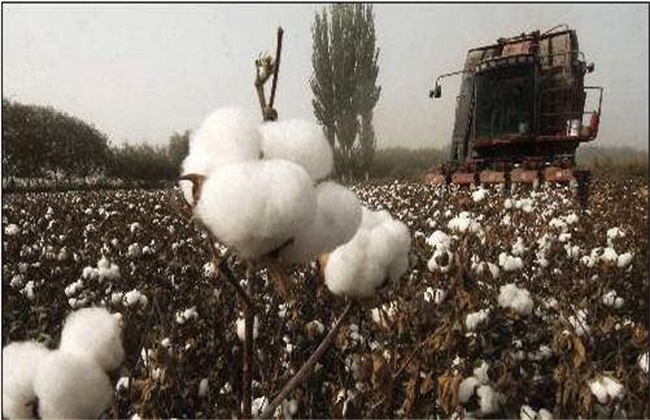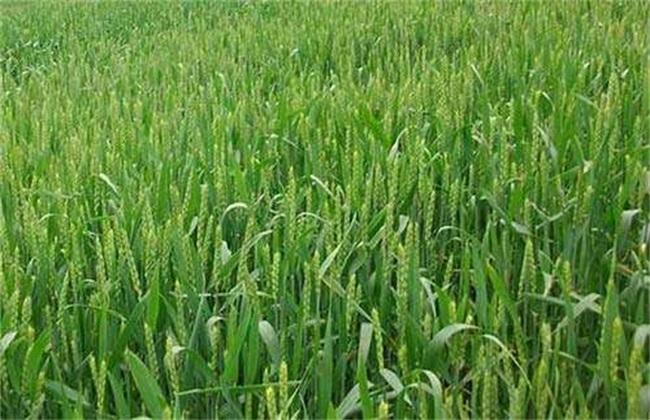How to manage winter wheat
Wheat is one of the main food crops in China, and the planting area in our country is very large. Wheat is divided into spring wheat and winter wheat, and now it is gradually entering winter. Winter wheat has also reached the time of sowing and planting, although winter wheat should have been planted in winter, but because of the winter weather temperature and so on. We still need to do a good job in management, so how to manage winter wheat? Let's take a look at it with the editor.

1. Pay attention to anti-freezing
When planting winter wheat, the management should pay attention to the formulation and implementation of the land. Because the temperature in winter is very low, so the anti-freezing work is very important, in order to improve the frost resistance of winter wheat and increase the yield of the second year. First of all, it is necessary to cultivate the hanging root seedlings with poor soil quality and large fields, which can be based on soil and miscellaneous fertilizer. It can provide anti-freezing effect for wheat seedlings, and then pay attention to pouring an appropriate amount of frozen water before winter. If the seedling stage is not good and the sowing is too late, then it is necessary to loosen the soil in time, avoid soil consolidation, raise soil temperature and cultivate strong seedlings.
2. Rational watering
In autumn and winter, there are generally few rainy days, and the soil is prone to drought. Therefore, watering and drought prevention is also very important when planting winter wheat. In many cases, there will be a more serious drought in the overwintering wheat fields, and the soil moisture is very poor. Therefore, when the temperature rises and the night freezes away, we should pay attention to watering to provide sufficient water for the root growth of winter wheat. However, when watering, we should pay attention to control the water temperature and watering time, and never water when the temperature is low, so as to prevent wheat seedlings from freezing damage and affect their growth.
3. To prevent prosperity.
Winter wheat planting should also pay attention to prevent the phenomenon of prosperity and growth. If sowing too early, it is easy to form prosperous seedlings in the early stage, and the growth ability will gradually weaken in the later stage. If you stay in a cold winter for a long time, you are extremely vulnerable to frost damage. Therefore, we should properly suppress it on a sunny morning to avoid excessive growth of the main stem and tillers of wheat seedlings. During the crackdown, if there is dew or frost on the seedlings, then it cannot be carried out to avoid harming the seedlings. After the crackdown, it is necessary to do a good job of paddling and watering frozen water. Then appropriate amount of ammonium bicarbonate and other substances were applied to inhibit the growth of wheat seedlings and avoid freezing damage to wheat.
4. Pest control
Usually half of the winter wheat is sown with the left and right side of the seedling. After the seedlings are collected, we should pay attention to the prevention and control of diseases and insect pests. About three weeks after the emergence of seedlings, diseases such as rust and sheath blight are very likely to occur. When the incidence rate reaches about 1x10, it is necessary to spray and control in time. If it is rust, spray water with uniconazole wettable powder or triadimefon wettable powder. If it is sheath blight, triazole can also be used, or Jinggangmycin can be used.
The above is a brief introduction to how to manage winter wheat. That's all for today's introduction. This article is for reference only. I hope it can help you all.
Related
- The first cup of black tea in spring, the flavor and history of tea gardens in Kenya, Africa
- The computer can not only choose potatoes, but also grow tea rice. AI will grow winter oolong tea champion.
- It is not only the inflated tea bitten by insects, but also engraved with the four seasons tea in Beipu.
- The Oriental Beauty Tea Festival in Zhuxian County takes the stage at the weekend to experience the plus-size feast of oil tea.
- & quot; Oriental Beauty Tea & Exploration of Emei in Hsinchu, the hometown of quot;
- The new variety of strawberry "Tainong 1" dessert is the first choice with mellow aroma. Crimson gorgeous
- History of Tea in Taiwan: from Wild Inner Mountain to Export Tea Garden
- Two types of Taiwan Oriental Beauty Black Tea won the British three-Star Award for Childhood Tea Xiang Zhang Jiaqi changed from pilot to champion tea maker.
- Banana species and varieties: the planting history of Taiwan Xianren banana and dwarf banana is long, is banana disease resistant?
- Coffee planting Technology: Qianjie Coffee from Seedling to harvesting



